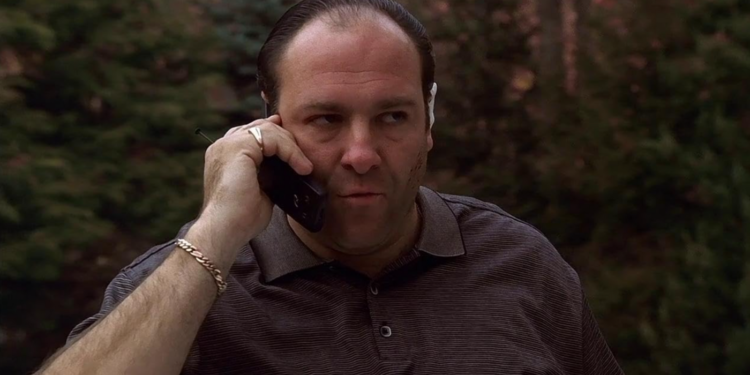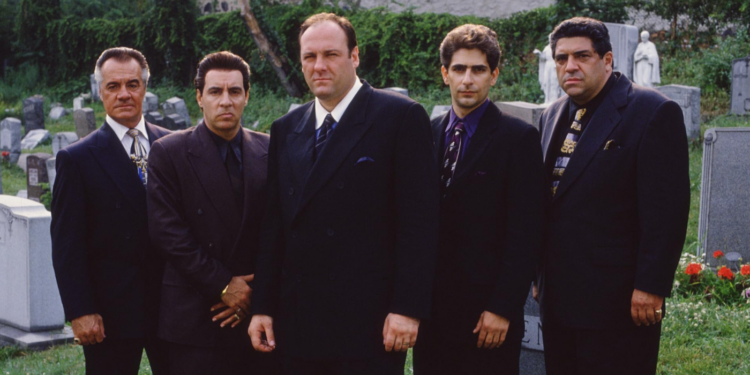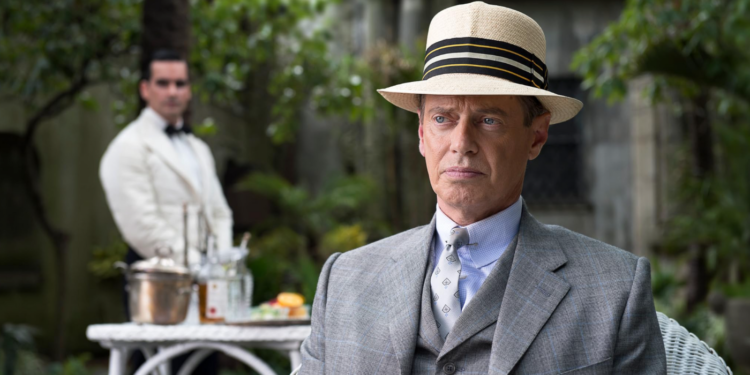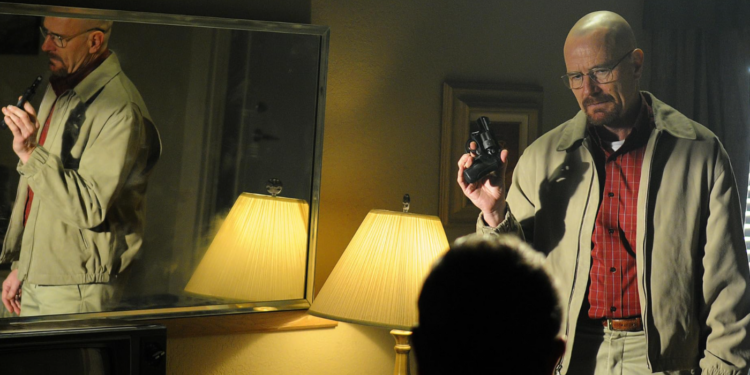The Sopranos revolutionized the television industry by shattering the notion that esteemed actors belonged solely to the realm of Hollywood movies. This groundbreaking series boldly showcased that some of the industry’s finest talents could not only flourish but excel on the small screen. By attracting the likes of James Gandolfini, Edie Falco, and an ensemble of talented actors, The Sopranos proved that television could offer rich and complex roles that rivaled those found in traditional cinema.
Additionally, the series introduced audiences to one of the first true antiheroes in Tony Soprano. James Gandolfini’s portrayal of this ruthless mobster was simultaneously terrifying and captivating, as he masterfully balanced his criminal empire with the challenges of family life and his own inner demons. So, let’s delve further into the complex yet trailblazing character of Tony Soprano.
Dissecting the Nuances of Antihero Tony Soprano

The Sopranos served up one of the most complex TV characters ever written in Tony Soprano. On the surface, he appears as the unyielding leader of a New Jersey crime family, deeply entangled in the world of organized crime. However, beneath this tough exterior lies a deeply broken man, struggling with his own inner demons.
From the very beginning of the series, Tony grapples with crippling panic attacks, the direct result of the overwhelming pressure that his life as a mob boss brings. In an unorthodox move, he seeks solace and guidance by breaking a cardinal rule of the Mafia and confiding in a psychiatrist. Through these sessions, Tony delves into the dark recesses of his troubled past, unraveling the contributing factors to his anxiety and deep-set depression. Ultimately, it becomes evident that one of the primary sources of his emotional turmoil is his own mother – a cold, distant figure whose lack of warmth and affection has left an indelible mark on Tony’s psyche.
As a violent and dangerous man, Tony Soprano could have easily become a one dimensional character. However, he resonated with audiences tremendously as he unveiled a nurturing side to his framework. For example, his love for animals is evident throughout the whole show, starting with his first panic attack as the pool ducks fly off, all the way to a fatal fight with his friend over a horse which was killed unjustly. This kind of character development had not been seen previously in depictions of gangsters. To that, Tony Soprano kicked off the rise of the TV antihero.
How The Sopranos Influenced a Whole New Genre of Television

The Sopranos broke new ground in showcasing that actors could thrive in the realm of television, rivaling the perceived pinnacle of Hollywood movies. Many stars of the show had already left their indelible marks in the film industry, with a significant portion of the cast having appeared in Martin Scorsese‘s legendary gangster masterpiece, Goodfellas. However, what truly set The Sopranos apart was its fearless approach in tackling an array of themes beyond the criminal empire of Tony Soprano.
While the inner workings of the Mafia remained a central concept, the series fearlessly delved into the uncharted territory of mental health. It openly confronted and discussed topics that were still considered taboo at the time of its release, including the use of mental health drugs. The show not only broached the subject but also explored the transformative power of therapy, emphasizing how it could shape a person during difficult times. By doing so, The Sopranos not only showcased the talents of its cast but also contributed to the broader cultural conversation surrounding mental health.
The Best Antihero Led TV Shows Like The Sopranos
Boardwalk Empire

Boardwalk Empire, much like The Sopranos, captivated audiences with its central focus on an antihero character. Created by Terence Winter, one of the brilliant minds behind the success of The Sopranos, Boardwalk Empire effortlessly intertwined elements of power, crime, and moral ambiguity. Set in the Prohibition era, the show revolved around Enoch “Nucky” Thompson (Steve Buscemi).
Nucky, like Tony Soprano, was a complex character who straddled the line between villain and protagonist, embodying the conflict between his criminal activities and his desire for societal acceptance. Both shows masterfully explored the depths of these characters’ psyches while taking viewers on a thrilling journey through the power struggles and inner workings of organized crime. With rich storytelling and exceptional writing, Boardwalk Empire stood as a worthy successor to The Sopranos, weaving a compelling narrative that kept audiences on the edge of their seats.
Breaking Bad

A year after The Sopranos ended, Breaking Bad begun and Walter White took the reins from Tony Soprano as TV’s next antihero. Vince Gilligan‘s groundbreaking series captivated audiences worldwide with its gripping plot and complex character development. The show revolves around the transformation of Walter White (Bryan Cranston), a high school chemistry teacher turned notorious drug kingpin.
Initially depicted as a mild-mannered and almost invisible man, Walter’s journey begins when he is diagnosed with terminal cancer. Realizing he must secure his family’s financial future, he teams up with a former student, Jesse Pinkman (Aaron Paul), to manufacture and sell methamphetamine. As Walter delves deeper into the criminal underworld, he becomes an antihero that viewers cannot help but love. However, Walter’s actions often leave viewers questioning their allegiance as he manipulates and destroys lives to protect his empire. Breaking Bad skillfully explores the moral complexities of its characters, leaving audiences in a perpetual state of perplexity and moral ambiguity as Walter continues his rise to criminal notoriety.
Mr Inbetween

Mr Inbetween follows the life of Ray Shoesmith (Scott Ryan), a professional hitman from Australia. However, alongside his questionable profession, he is also a loving father, boyfriend, and a carer to his older brother. As he goes about his days, he is thrust into a constant battle of keeping his life as a hitman a secret from those he loves. The show skillfully blends dazzling action, dark humour and touching undertones that deal with some of life’s most poignant issues.
In terms of the antihero realm, Mr Inbetween is remarkably close in tone to The Sopranos, as much like Tony Soprano, Ray is a dangerous man who has a delicate side to his nature that he tries his best to hide. Interestingly, Ryan also created the show and wrote all episodes across its three season run. When appearing on the Pajama Pants Podcast, Ryan divulged some fascinating behind the scenes information. Ryan stated that when writing Mr Inbetween, he would watch The Sopranos and make notes, finding ways to subtly make homages to one of his favourite shows. So, it’s easy to see why the two shows have similar tones. However, Mr Inbetween still serves up its own unique world within the crime genre.
 Follow Us
Follow Us





